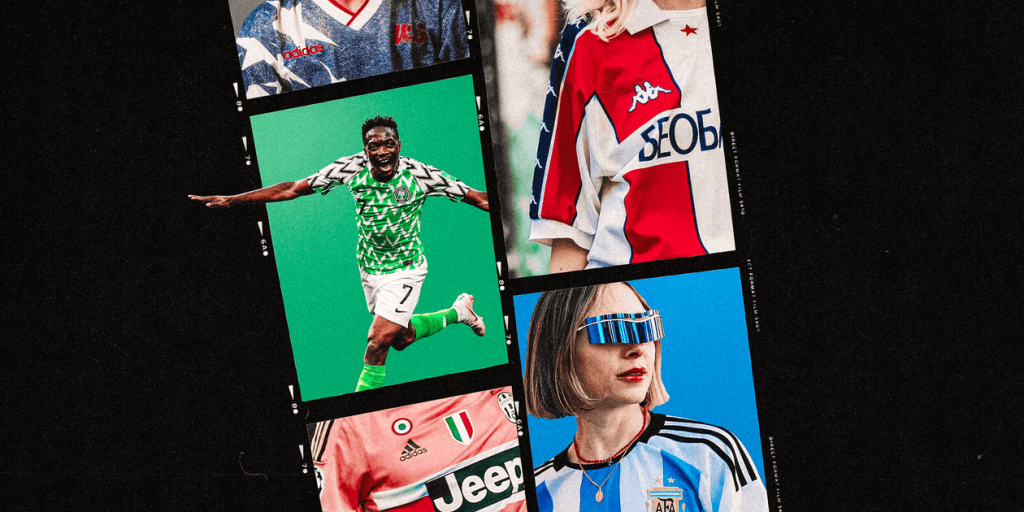Football shirts have evolved from an exclusive item for players and die-hard fans to a popular and sought-after fashion item that is sported by music festivals goers, celebrities and global fashion brands. The trend took off during the 2010s, when Canadian artist Drake wore a pink Juventus shirt from the 2015-16 season. This boosted the shirt’s popularity, leading to an online scramble among fans. In 2018, Nigeria launched their kit for the World Cup finals, capturing the attention of the masses with its unique design inspired by the ‘Naija’ culture, the country’s history, and the success of its emerging football talents.
In 2018, Paris Saint-Germain collaborated with Nike’s Jordan Brand, introducing striking black-and-white kits to the world worn by football superstars Neymar and Kylian Mbappe. The use of logo associated with US basketball legend Michael Jordan created a culture crossover appeal. This scale and type of collaboration was unprecedented, combining elements of fashion and football that appealed to a mainstream audience.
The trend’s growth is evident in the rise of Classic Football Shirts, an online business founded by Doug Bierton and Matt Dale in 2006. They began by buying and selling football shirts in a relatively niche collector industry, but by 2024, they project revenues of over $50 million. Thanks to a $38.5 million investment from The Chernin Group in May, the company has announced the involvement of several other significant investors.
The company has over 1.3 million Instagram followers and stores in key UK and USA cities. Moreover, it also operates a rigorous authentication process given an increasingly prevalent counterfeit market alongside the rise in both retro and contemporary shirt prices. High-end fashion brands, global celebrities, and a retro-shirt trend on social media platform TikTok named ‘Blokecore’ further fuel the industry’s expansion and acceptance in mainstream culture.
Whilst Mcandrew from an online independent vintage retailer Sound Trout observes an increase in fakes due to growing demand, Bierton’s Classic Football Shirts company employs a group of approximately 20 people to authenticate shirts and source genuine classic football shirts from across the globe. The trend has evolved to be international, with collectors across the world, diverse subcultures and a new interest in ‘hero printing’ – purchasing shirts for the players’ names printed on them as much as for the teams themselves.
According to Bierton, the “1990s remain the golden era for long-time shirt collectors and those who have immersed themselves in the trend more recently.” Thanks to freedom of expression, bolder designs, and a pre-commercialisation feel, the 1990s football shirts have captured the imagination of younger generations. The growing popularity and investment into football shirts signify the evolution of the sport from a purely athletic endeavour to a cultural phenomenon with significant influences in mainstream fashion.


